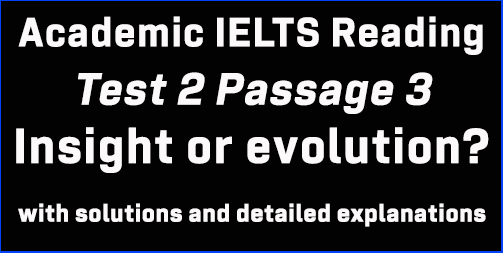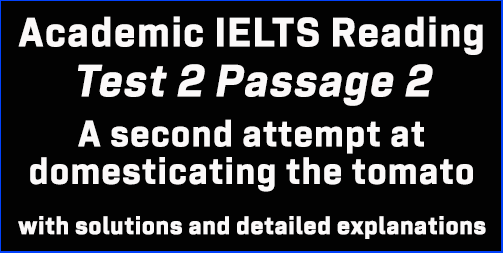IELTS General Training Reading: Cambridge 8 Test B Section 2; Recycling at work – handy hints to employers & How to answer any interview question; with best solutions and best explanations
This General Training IELTS Reading post deals with a solution package for IELTS Cambridge 8 Reading Test B Section 2 that has a passage entitled ‘Recycling at work – handy hints to employers‘ and ‘How to answer any interview question‘. This is a targeted post for candidates who have significant problems in searching for and understanding Reading Answers. This post can guide you the best to understand every Reading answer easily and without much difficulty. Finding IELTS Reading answers is a step-by-step process, and I can confidently say that this post will help you in this respect.
IELTS Cambridge 8 Test B: GT Reading Module
Section 2:
Question 15-27
Questions 15-21: [Short answer to open questions (NO MORE THAN THREE WORDS)
[In this kind of questions candidates have to answer some questions, only with some conditions like NO MORE THAN THREE/TWO WORDS and/or A NUMBER or, ONE WORD ONLY. Each question has keywords that will lead to the answer. This question type generally follows a sequence.]
The headline of the text: Recycling at work – handy hints to employers
Question 15: What does the writer think should be carried out in a company before it starts recycling?
Keywords for this question: should be, carried out, before, starts, recycling,
The answer is in the second section of the text named ‘Setting up a company scheme’, in ‘Waste audit’ part: “Before starting a recycling scheme, perform an audit. This will make you aware of how much waste you are producing in the company.”
Here, perform = carried out,
So, the answer is: (an) audit/ (waste) audit
Question 16: What machines can help to cut the stationery budget?
Keywords for this question: machines, help to cut, stationery budget,
The answer can be found in the second section of the text named ‘Setting up a company scheme’, in ‘Company Policy’ part: “Buy recycled paper. Although this is sometimes more expensive, costs can be reduced by lowering consumption and using duplex printers.”
Here, costs can be reduced = cut . .. . .budget,
So, the answer is: (duplex) printers
Question 17: What can be displayed in the workplace to publicise the recycling scheme?
Keywords for this question: can be displayed, workplace, publicise, recycling scheme,
The answer is in the second section of the text named ‘Setting up a company scheme’, in ‘Get everyone involved’ part, point no. 1: “ • Raise awareness internally within the company, perhaps by putting up educational posters.”
Here, Raise awareness = publicise, putting up = displayed
So, the answer is: (educational) posters
Question 18: What can be distributed to motivate staff to recycle more?
Keywords for this question: can be distributed, motivate, staff, recycle more,
The answer is found in the second section of the text named ‘Setting up a company scheme’, in ‘Get everyone involved’ part, point no. 4: “ • Send out regular newsletters reporting on all waste improvements. Staff will then see the impact their actions are having.”
Here, send out = distribute, staff will then see the impact = motivation,
So, the answer is: (regular) newsletters
Question 19: What can unwanted paper be used for in the office?
Keywords for this question: unwanted paper, used for, office,
The answer is in the third section of the text named ‘What to recycle and how’, in ‘Paper’ part, “According to a recent survey, 65% of waste produced is paper waste. The waste paper will inevitably be produced in the workplace, but it is not necessary to discard it. It can serve a variety of purposes before it is recycled, such as writing notes.. .. .”
Here, unwanted paper = paper waste/waste paper, serve… purposes = be used for,
So, the answer is: (writing) notes
Question 20: What can be bought to cut down on the waste produced by staff refreshments?
Keywords for this question: can be bought, cut down, waste, produced by, staff refreshments,
The answer lies in the third section of the text named ‘What to recycle and how’, in ‘Plastic cups’ part, “Rather than supplying disposable plastic cups in your workplace, get ceramic mugs that can be re-used. Not only do they make your tea taste better, but they can reduce your office waste by up to 1%!”
Here, get = can be bought, reduce = cut down,
So, the answer is: (ceramic) mugs
Question 21: Where can unwanted PCs be sent?
Keywords for this question: unwanted, PCs, be sent,
The answer lies in the third section of the text named ‘What to recycle and how’, in ‘Electrical equipment’ part, “You could also consider donating your old computers to charities when it comes to replacing them.”
Here, old computers = wanted PCs, be sent = donate,
So, the answer is: (to) charities
Questions 22-27: (Completing sentences with ONE WORD ONLY):
In this type of question, candidates are asked to write ONE WORD ONLY to complete sentences on the given topic. For this type of question, first, skim the passage to find the keywords in the paragraph concerned with the answer, and then scan to find the exact word.
[TIPS: Here, scanning technique will come in handy. Target the keywords of the questions to find the answers. Remember to focus on Proper nouns, random Capital letters, numbers, special characters of text etc.]
The headline of the passage: How to answer any interview question
Question 22: The writer warns candidates not to imitate the way that _________ ignore questions in interviews.
Keywords for this question: warns, candidates, not to, imitate, ignore, questions, interviews,
In the second paragraph, the answer is found in lines 1-4, “Unlike some politicians, who take no notice of press questions and immediately introduce a different topic in response, job candidates must answer employers’ queries,’ says John Barford of the interview training firm Genesis.. .”
Here, take no notice = ignore, press questions = questions in interviews,
So, the answer is: (some) politicians
Question 23: Interviewees are recommended to follow a certain ___________ to allow them to communicate their main points.
Keywords for this question: Interviews, recommended, follow, certain, to allow, communicate, main points,
In the third paragraph, the answer can be found in lines 1-3, “He advises candidates at job interviews to apply the formula Q = A + 1: Q is the question; A is the answer; + is the bridge to the message you want to deliver; and 1 is the point you want to make.”
Here, advises candidates = interviewees advises, to follow = apply,
So, the answer is: formula
Question 24: Senior executives advise candidates to request information from __________ before an interview.
Keywords for this question: Senior executives, advise, candidates, request, information, before, interview,
The answer can be found in paragraph no. 4, point no. 1, “Diligent preparation is also necessary to effectively answer any interview question, say senior executives. They give a number of useful tips:
- Learn as much as you can beforehand. Ask company employees questions prior to job interviews to gain as much insight as you can.”
Here, Ask … . . questions prior to job interviews = request information,
So, the answer is: (company) employees
Question 25: A candidate can also learn about a business by studying its ___________.
Keywords for this question: candidate, can also learn, business, studying,
The answer can be found in paragraph no. 4, point no. 1, “If the company is publicly owned, find out how viable it is by reading shareholder reports. You can then tailor what you say to the company’s issues.”
Here, find out how viable it is by reading = learn .. . . by studying,
So, the answer is: shareholder reports
Question 26: The head of an interview training firm advises people to avoid telling __________.
Keywords for this answer: head of an interview, training firm, advises, people, avoid telling,
This answer can also be found in paragraph no. 4. Here, the author says in point no. 3, “Count on being asked about a past mistake or blemish on your career record, and don’t try to dodge the issue. Ms Murphy, president of the Murphy Group, a media interview training firm, says that it’s important to steer clear of lies at all costs. Just answer the question and move on.”
Here, avoid telling = steer clear of,
So, the answer is: lies
Question 27: In his job interview, one executive explained how he had ___________ considerably from a previous failure.
Keywords for this answer: job interview, one executive, explained, considerably, from, previous failure,
This answer can also be found in paragraph no. 4. Here, the author says in point no. 4, “. . When he was being interviewed for his current job, he mentioned he had been involved in many successful turnarounds and one that failed. ’And I said how I’d benefited in many ways from going through that experience,’ he says.”
Here, one that failed = a previous failure, in many ways = considerably,
So, the answer is: benefited/ benefitted
Click here for solutions to Cambridge 8 GT Test B Section 1
Click here for solutions to Cambridge 8 GT Test B Section 3




3 thoughts on “IELTS General Training Reading: Cambridge 8 Test B Section 2; Recycling at work – handy hints to employers & How to answer any interview question; with best solutions and best explanations”